Other market structures Monopoly, monopolistic competition, oligopoly

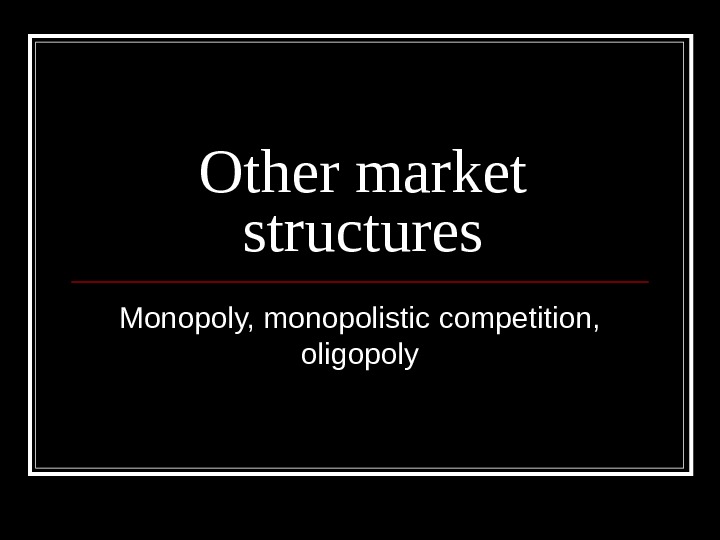
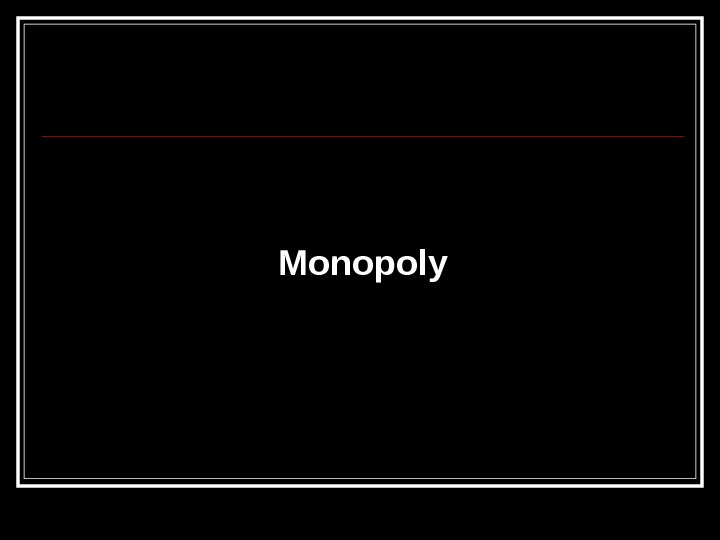
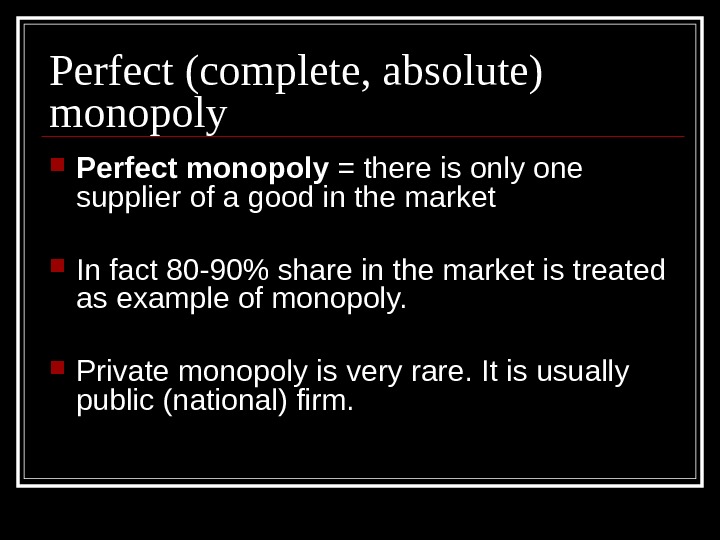
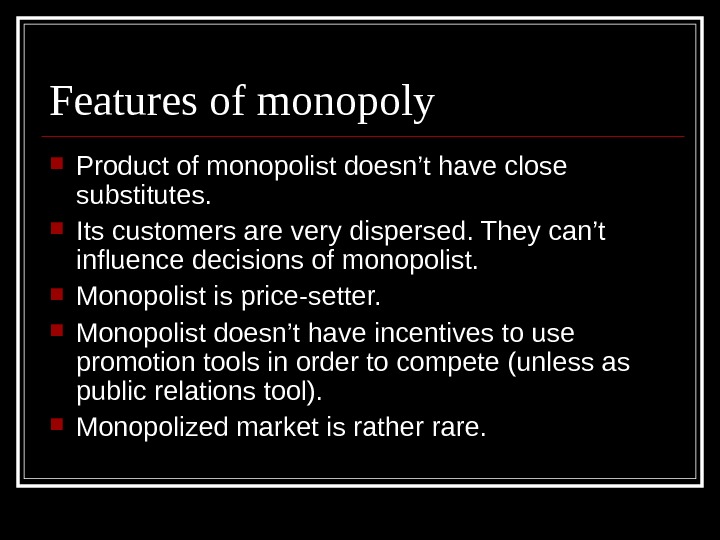
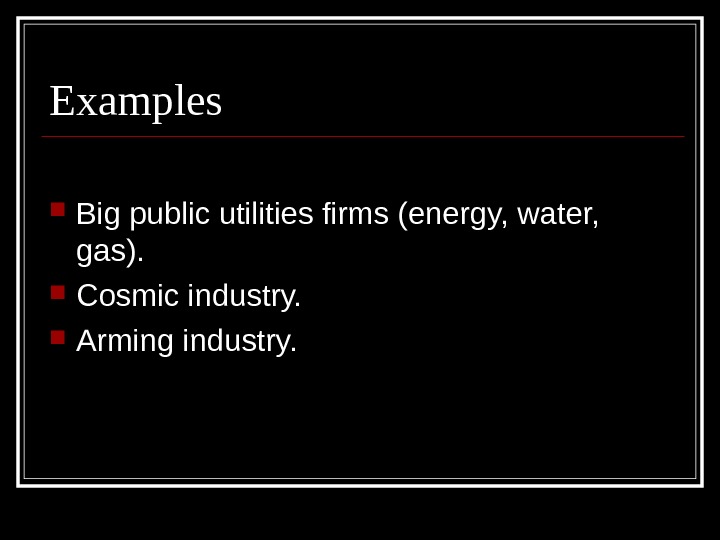
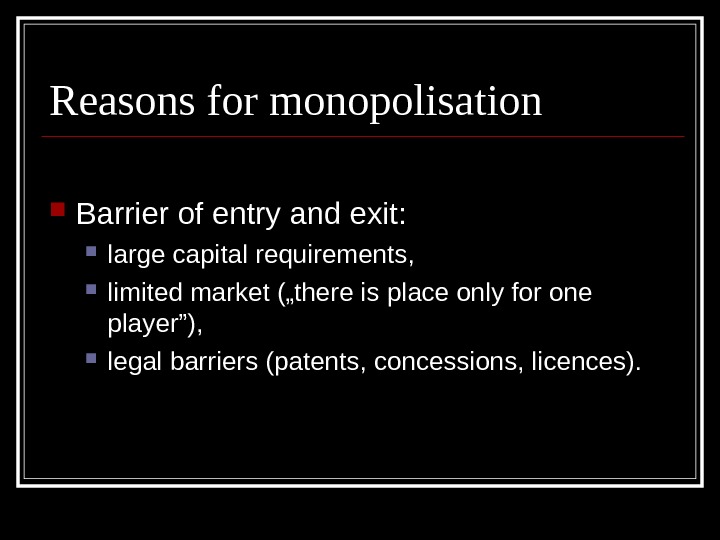
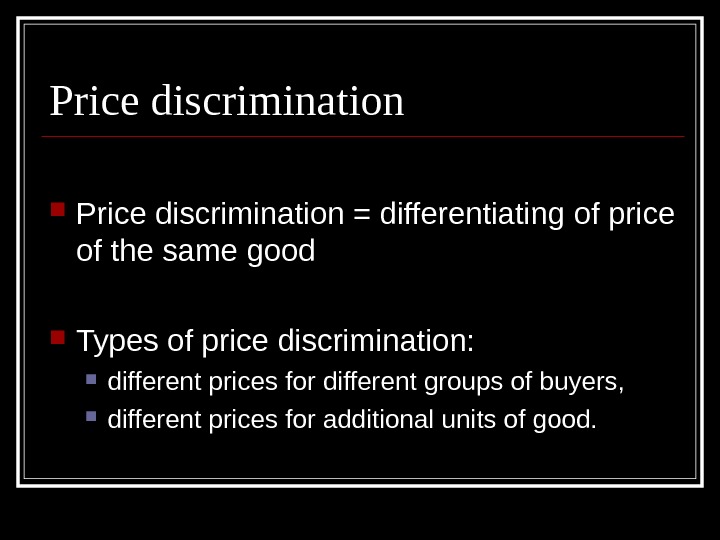
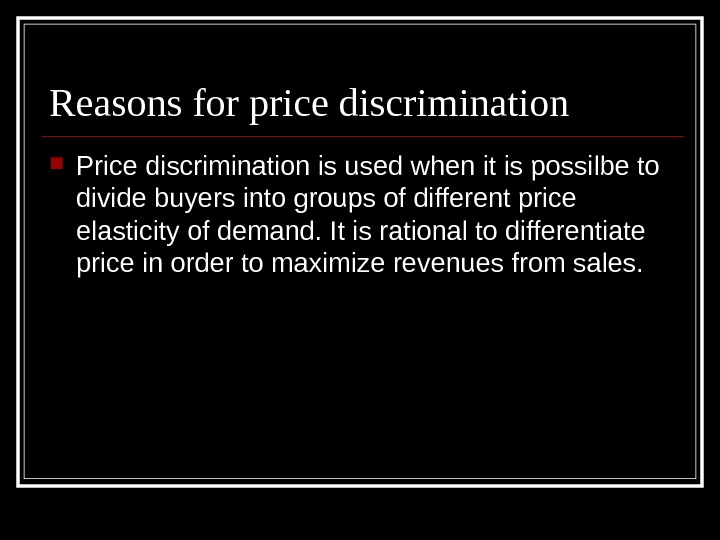
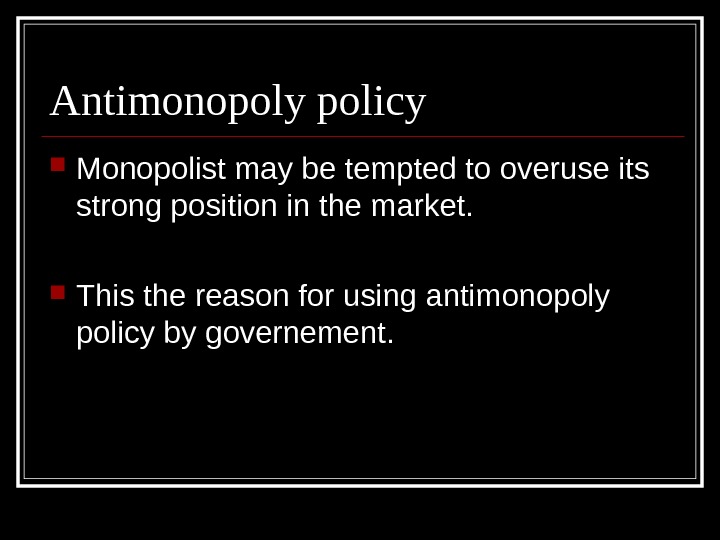
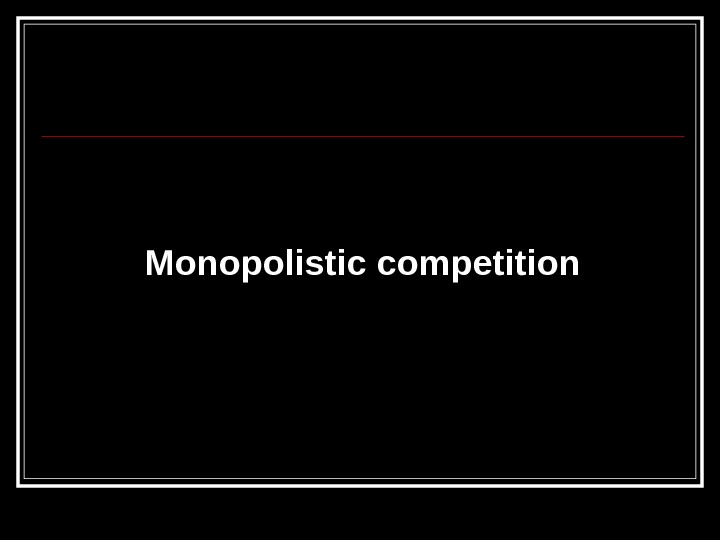
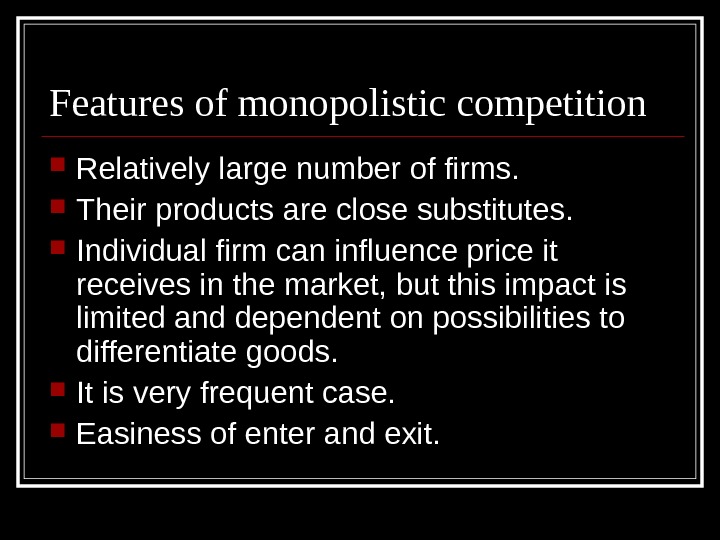
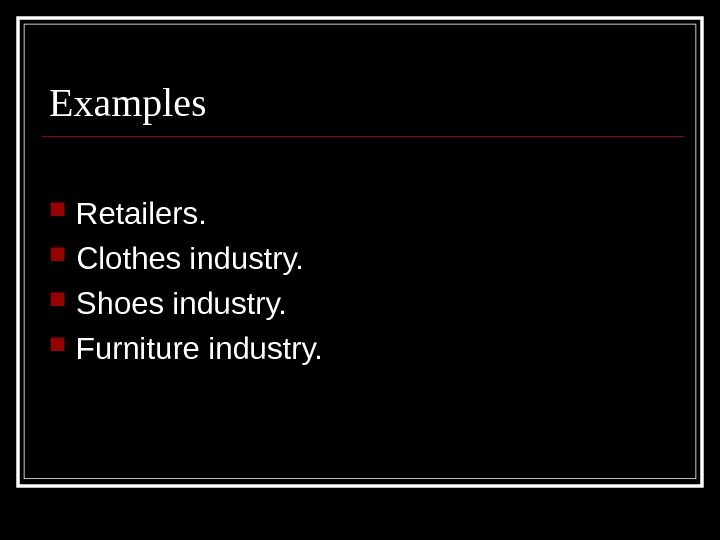
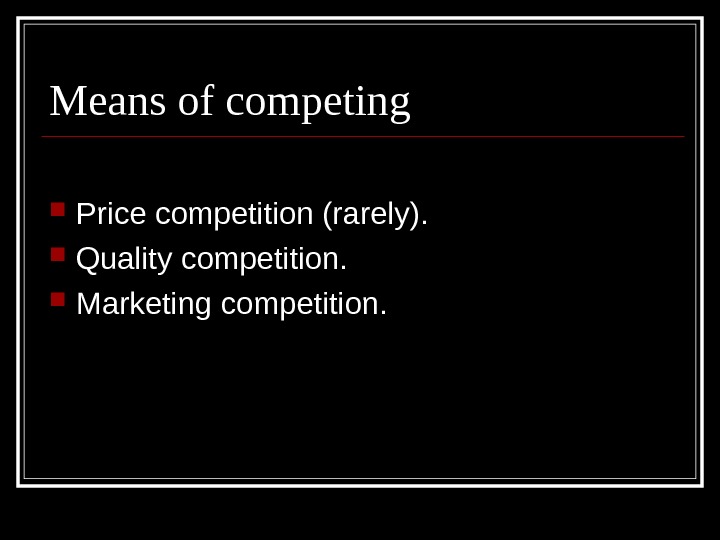
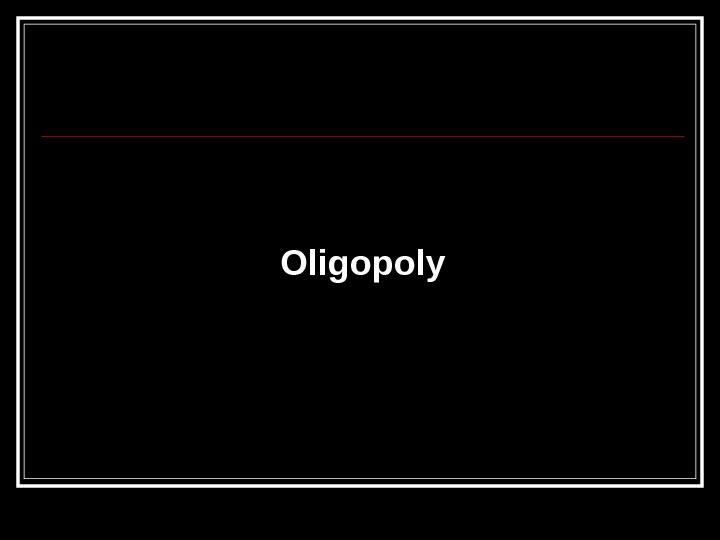
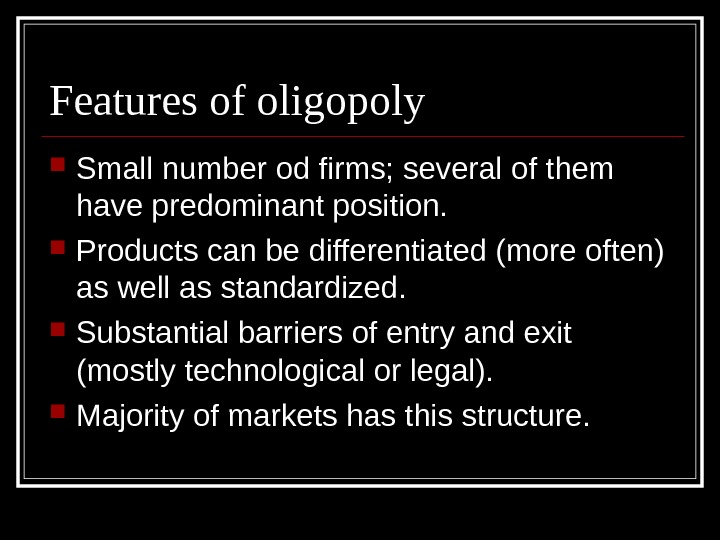
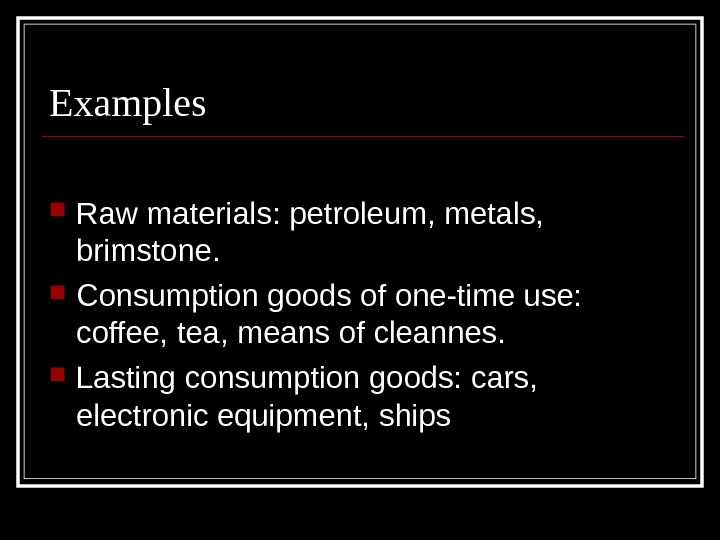
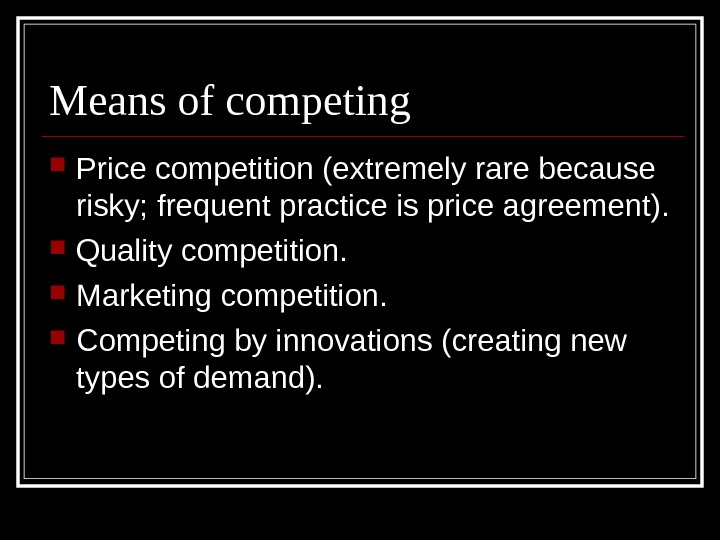
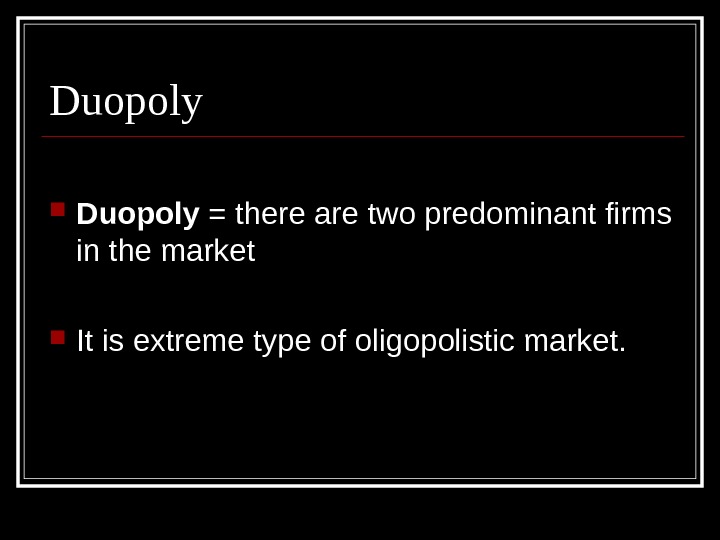
other_market_structures_2.ppt
- Размер: 96.5 Кб
- Количество слайдов: 18
Описание презентации Other market structures Monopoly, monopolistic competition, oligopoly по слайдам
 Other market structures Monopoly, monopolistic competition, oligopoly
Other market structures Monopoly, monopolistic competition, oligopoly
 Monopoly
Monopoly
 Perfect (complete, absolute) monopoly Perfect monopoly = there is only one supplier of a good in the market In fact 80 -90% share in the market is treated as example of monopoly. Private monopoly is very rare. It is usually public (national) firm.
Perfect (complete, absolute) monopoly Perfect monopoly = there is only one supplier of a good in the market In fact 80 -90% share in the market is treated as example of monopoly. Private monopoly is very rare. It is usually public (national) firm.
 Features of monopoly Product of monopolist doesn’t have close substitutes. Its customers are very dispersed. They can’t influence decisions of monopolist. Monopolist is price-setter. Monopolist doesn’t have incentives to use promotion tools in order to compete (unless as public relations tool). Monopolized market is rather rare.
Features of monopoly Product of monopolist doesn’t have close substitutes. Its customers are very dispersed. They can’t influence decisions of monopolist. Monopolist is price-setter. Monopolist doesn’t have incentives to use promotion tools in order to compete (unless as public relations tool). Monopolized market is rather rare.
 Examples Big public utilities firms (energy, water, gas). Cosmic industry. Arming industry.
Examples Big public utilities firms (energy, water, gas). Cosmic industry. Arming industry.
 Reasons for monopolisation Barrier of entry and exit: large capital requirements, limited market („there is place only for one player”), legal barriers (patents, concessions, licences).
Reasons for monopolisation Barrier of entry and exit: large capital requirements, limited market („there is place only for one player”), legal barriers (patents, concessions, licences).
 Price discrimination = differentiating of price of the same good Types of price discrimination: different prices for different groups of buyers, different prices for additional units of good.
Price discrimination = differentiating of price of the same good Types of price discrimination: different prices for different groups of buyers, different prices for additional units of good.
 Reasons for price discrimination Price discrimination is used when it is possilbe to divide buyers into groups of different price elasticity of demand. It is rational to differentiate price in order to maximize revenues from sales.
Reasons for price discrimination Price discrimination is used when it is possilbe to divide buyers into groups of different price elasticity of demand. It is rational to differentiate price in order to maximize revenues from sales.
 Antimonopoly policy Monopolist may be tempted to overuse its strong position in the market. This the reason for using antimonopoly policy by governement.
Antimonopoly policy Monopolist may be tempted to overuse its strong position in the market. This the reason for using antimonopoly policy by governement.
 Monopolistic competition
Monopolistic competition
 Features of monopolistic competition Relatively large number of firms. Their products are close substitutes. Individual firm can influence price it receives in the market, but this impact is limited and dependent on possibilities to differentiate goods. It is very frequent case. Easiness of enter and exit.
Features of monopolistic competition Relatively large number of firms. Their products are close substitutes. Individual firm can influence price it receives in the market, but this impact is limited and dependent on possibilities to differentiate goods. It is very frequent case. Easiness of enter and exit.
 Examples Retailers. Clothes industry. Shoes industry. Furniture industry.
Examples Retailers. Clothes industry. Shoes industry. Furniture industry.
 Means of competing Price competition (rarely). Quality competition. Marketing competition.
Means of competing Price competition (rarely). Quality competition. Marketing competition.
 Oligopoly
Oligopoly
 Features of oligopoly Small number od firms; several of them have predominant position. Products can be differentiated (more often) as well as standardized. Substantial barriers of entry and exit (mostly technological or legal). Majority of markets has this structure.
Features of oligopoly Small number od firms; several of them have predominant position. Products can be differentiated (more often) as well as standardized. Substantial barriers of entry and exit (mostly technological or legal). Majority of markets has this structure.
 Examples Raw materials: petroleum, metals, brimstone. Consumption goods of one-time use: coffee, tea, means of cleannes. Lasting consumption goods: cars, electronic equipment, ships
Examples Raw materials: petroleum, metals, brimstone. Consumption goods of one-time use: coffee, tea, means of cleannes. Lasting consumption goods: cars, electronic equipment, ships
 Means of competing Price competition (extremely rare because risky; frequent practice is price agreement). Quality competition. Marketing competition. Competing by innovations (creating new types of demand).
Means of competing Price competition (extremely rare because risky; frequent practice is price agreement). Quality competition. Marketing competition. Competing by innovations (creating new types of demand).
 Duopoly = there are two predominant firms in the market It is extreme type of oligopolistic market.
Duopoly = there are two predominant firms in the market It is extreme type of oligopolistic market.

